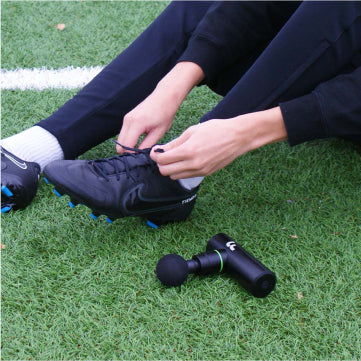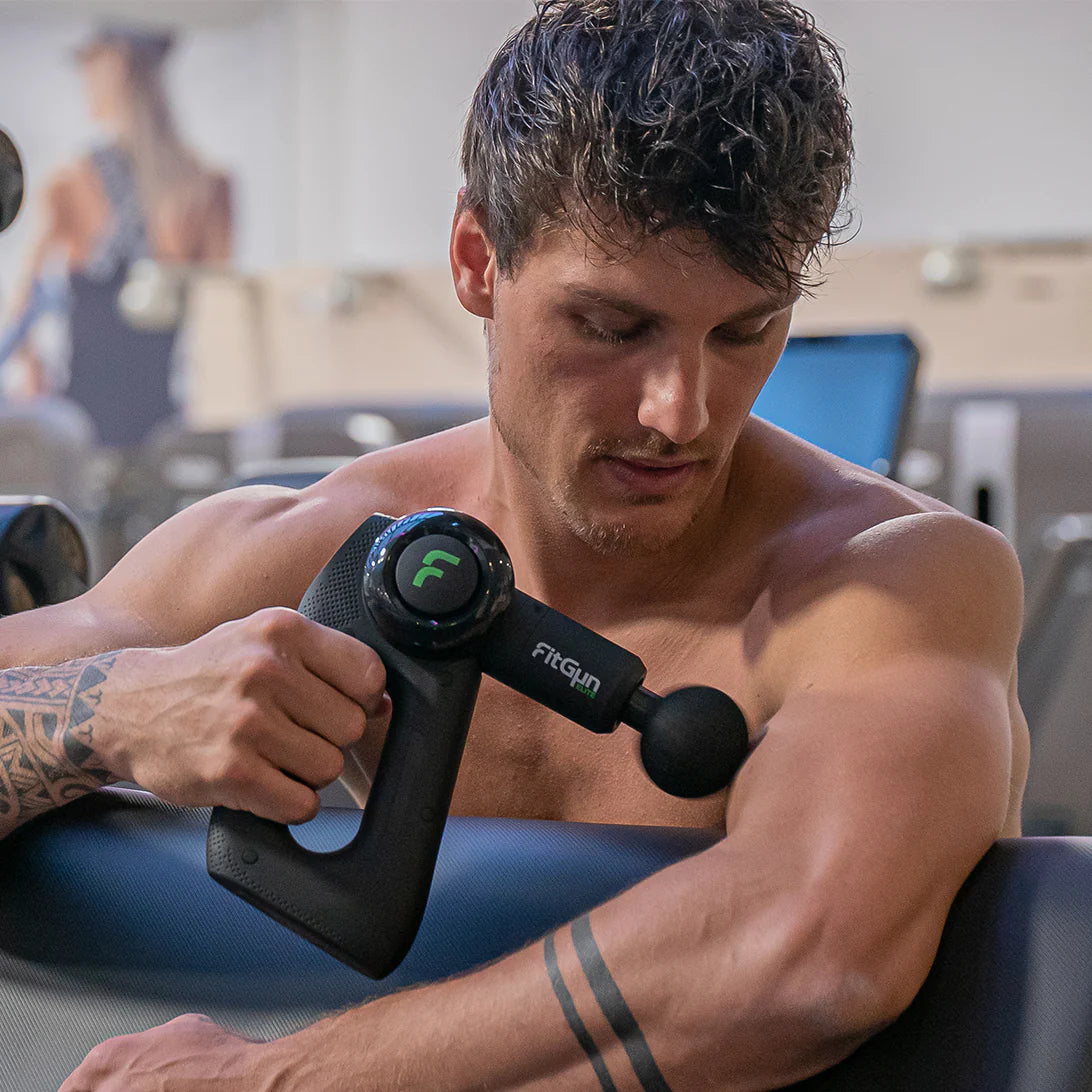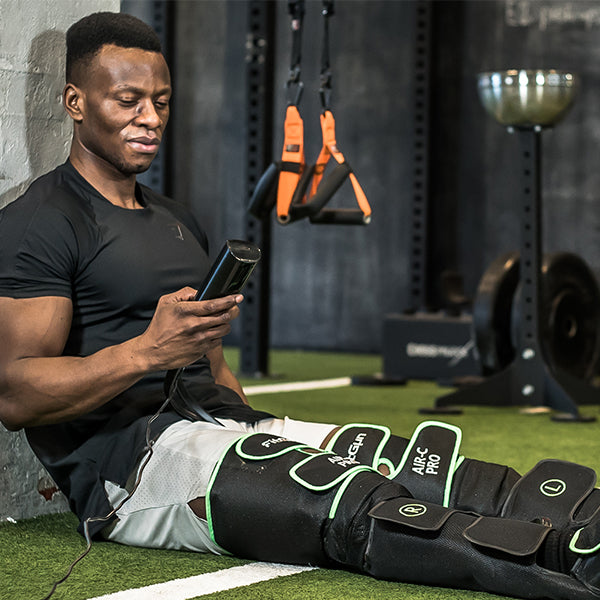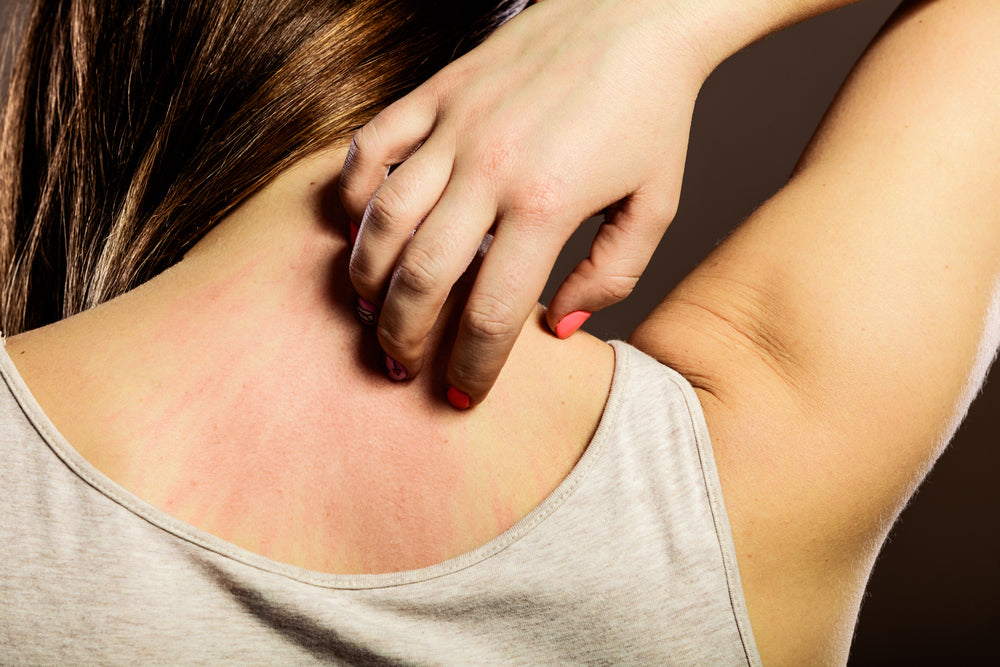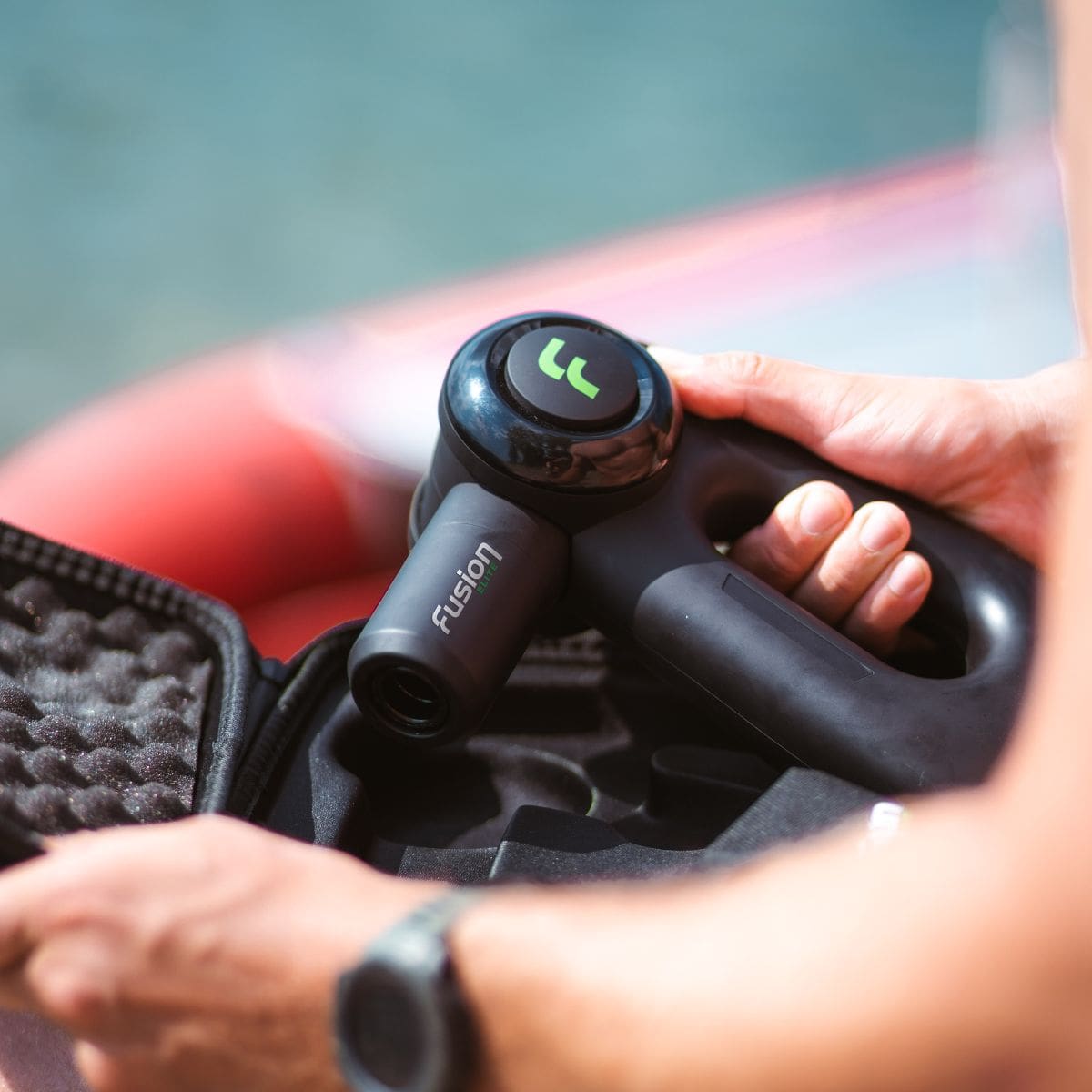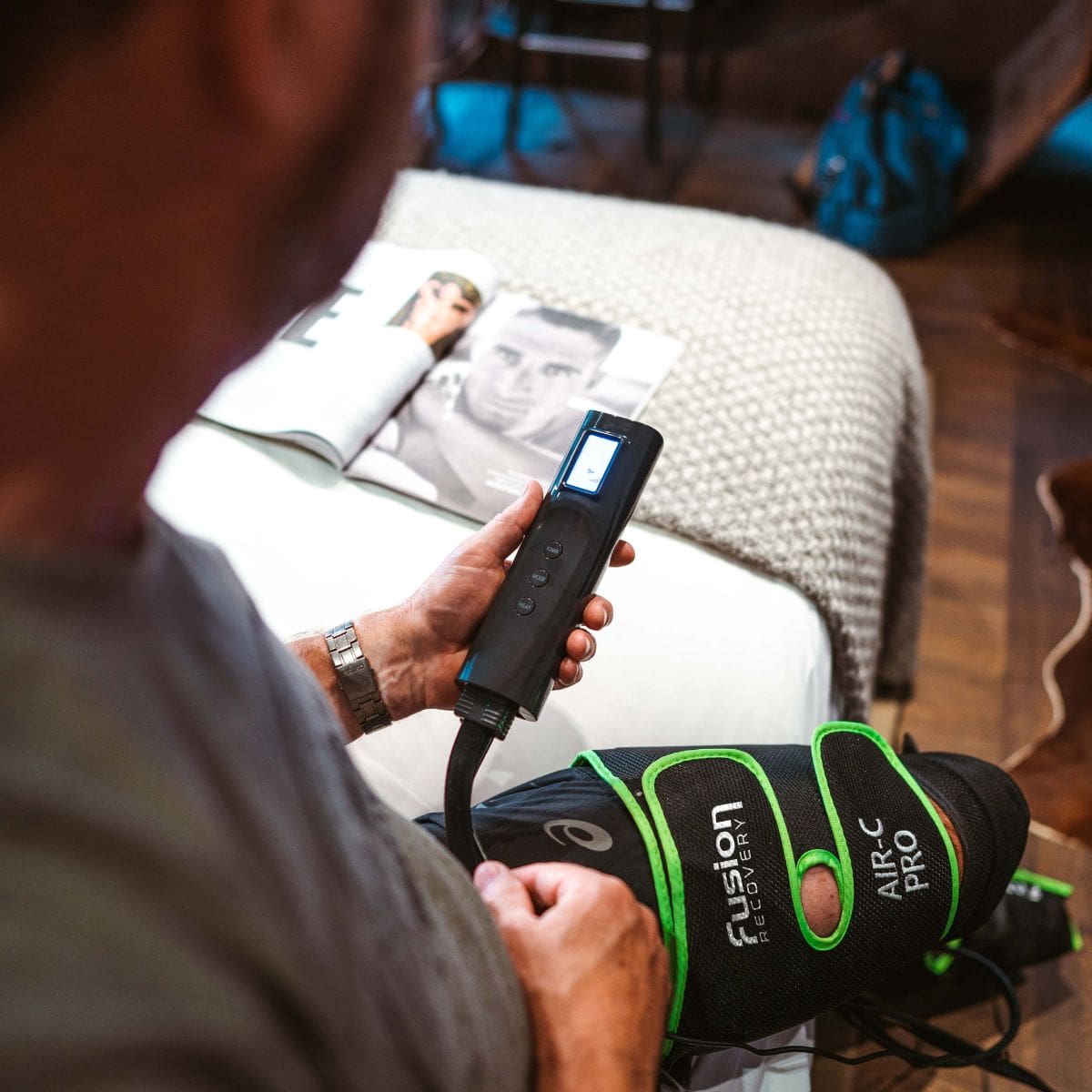Are you dealing with itchy skin after massage therapy and wondering why it’s happening?
If so, you’re not alone.
Treating your body's muscles to massage therapy can be a great way to reduce stress, relax, and even help alleviate pain. This bodywork technique involves manipulating the soft tissues of your body to help reduce tension and promote healing.
While massage therapy has many benefits, certain people may have a number of different reactions to it afterwards.
One common side effect people tend to experience after massage therapy is itching. This side effect can range from mild to severe, and there are a few reasons why it happens.
That's what we'll be exploring in this article. From possible causes to treatments and prevention tips for dealing with itchy skin after massage therapy, you'll walk away with a better understanding of why this happens and how to deal with it.
So, let's jump right in!
Possible Reasons for Dealing With Itchy Skin After Massage Therapy
Dealing with itchy skin after massage therapy can occur for a number of different reasons. Some of them include:
Muscle spasms
A major reason why people experience itchy skin after a massage session is due to muscle spasms.
During massage therapy, your muscles are manipulated, which can cause them to contract and relax quickly. This rapid contraction and relaxation can sometimes cause them to spasm, leading to inflammation and increased sensitivity in the area.
In turn, this can lead to itching or even tingling sensations in the area.
Allergic reactions
Another possible reason why people experience itchy reactions after a massage session is due to an allergic reaction.
Massage therapy involves the use of massage oils, lotions, or topical creams that may contain ingredients that could cause a reaction in some people. These reactions can range from mild (such as redness and itching) to severe (such as anaphylaxis).
If you think you may be allergic to something used during your massage session, make sure to speak with your massage therapist before future sessions.
Vibratory urticaria
Ever heard of vibratory urticaria?
It's a rare condition where a person experiences hives or skin reactions after being exposed to vibration. This can include massage therapy, certain sports activities, or even using electric tools.
Those suffering from this condition may experience itchy hives and rashes after massage therapy sessions. However, licensed massage therapists are often aware of this condition and will usually take steps to avoid any activities that could trigger it.
If you're using a self-massage tool, you may want to be mindful of this condition and take the necessary precautions.
Dehydration
Do you skip drinking water right before or after a massage therapy session?
If so, you could be dealing with itchy skin as a result.
Massage therapy helps release toxins and other metabolic waste from the body. As such, it's important that you rehydrate afterwards in order to flush out these toxins and keep your body functioning properly.
Without adequate hydration, your skin can become dry, itchy, and uncomfortable. This will make it difficult to enjoy the post-massage feeling and can even lead to further skin issues due to dry skin.
Pressure urticaria
Next on our list is pressure urticaria.
This condition occurs when a person experiences hives or skin reactions after being exposed to pressure. This includes massage therapy, tight clothing, and even certain sports activities.
Those suffering from this condition may experience itchy sensations after massage therapy sessions. It is important to note that Pressure Urticaria can have an immediate reaction or a delayed reaction, which can occur up to 24 hours after the massage.
So, try to avoid any activities or tight clothing that could trigger this condition after your session.
Nitric oxide in the body
While this may sound a bit out there, some people experience itchy skin after massage therapy due to the release of nitric oxide in their bodies.
Nitric oxide is an important chemical compound in the body that plays a role in many physiological processes, such as vasodilation and muscle relaxation. It's produced naturally by our bodies, but massage therapy can help boost its production even further.
With increased nitric oxide in the body, histamine (a compound responsible for allergic reactions) is produced, which can lead to itching as well as other skin reactions. Histamine release can also be triggered by other factors such as stress, exercise, and certain medications.
Neuronal firing
Last on our list of possible causes is neuronal firing.
Neurons are specialized cells that send and receive information throughout your body, including in the skin.
During massage therapy, neurons may be stimulated, which can cause them to fire rapidly. This rapid neuronal firing can lead to increased sensitivity in the area, which can cause itching or even burning sensations.
In some cases, this itching can be quite intense and may last for several hours after the massage session.
These are just a few possible reasons why most people deal with itchy skin right after a massage session.
Whether yours is due to an allergic reaction, vibratory urticaria, or something else, finding ways to relieve your itchy skin is key.
Let's take a look at just how you can do that in the next section.
How To Relieve Itchy Skin After Massage Therapy
Dealing with itchy skin after massage therapy can be quite uncomfortable, but there are some steps you can take to help relieve the discomfort.
Some of the most common methods include:
Take a cool bath or shower

Having a cool bath or shower can be an effective way to reduce the itchiness caused by massage therapy.
You see, when you soak in a cool bath, the cool water helps soothe the skin and reduce inflammation, which can lessen the itching sensation. When taking a shower or bath, make sure not to use hot water, as this may exacerbate the itching.
You can also add some oatmeal or baking soda to your bath for extra relief.
Moisturize your skin
Using a gentle, fragrance-free moisturizer can also be an effective way to get rid of itching right after massage therapy.
Moisturizers help lock in moisture and keep the skin hydrated, which can help reduce itching. Make sure to use a product that is specifically designed for sensitive skin and that is free of fragrances, dyes, and irritants.
Also, apply the moisturizer within three minutes after the massage in order to lock in the most moisture.
Take antihistamines
Another way to reduce the distress and discomfort of itchy skin is by taking antihistamines.
Antihistamines are medications that can help reduce the symptoms of an allergic reaction, such as itchiness and swelling. They work by blocking the effects of histamine (a compound involved in allergic reactions), so they can be particularly effective for dealing with itchy skin.
If this relief method feels like a good fit for you, be sure to follow the instructions on the label when taking these medications.
Apply cooling agents
Another way to help soothe itchy skin after massage is to apply cooling agents.
Methanol or calamine lotion are two natural cooling agents that can help reduce the itching sensation. Both of these products have anti-inflammatory and cooling properties, making them effective for reducing itchiness.
Simply apply a thin layer to the affected area and let it sit for a few minutes before rinsing off. Note that menthol may not be suitable for those with sensitive skin.
To use either of these products, simply apply a thin layer to the area where you're feeling the itch and let the product sit for a few minutes before rinsing off.
Have an oatmeal bath
Having an oatmeal bath is an effective way to soothe itchy skin after a massage.
Oats naturally have antioxidant properties, which can help reduce the itching sensation. To make an oatmeal bath, simply place a cup of oats into a thin cotton cloth or muslin bag and tie it securely.
Place the bag in your bath water and let it steep for 10 minutes. Once finished, remove the bag from the water and slowly bathe in the oatmeal-infused water for relief.
By following the tips outlined above, you can effectively reduce the discomfort caused by itchy skin after massage therapy.
Just ensure you stick to gentle and natural remedies, as these are the safest for your skin. You'll find that the relief you need will come in no time.
But what if we told you that there's a way to prevent itchy skin in the first place? Yes, instead of resorting to these remedies after the fact, you can actually prevent itchy skin with some simple steps.
Keep scrolling to learn how.
Prevention Tips for Itchy Skin After Massage Therapy
While it is common to experience itchy skin after a massage, there are a few things you can do to help prevent it.
Some of these preventative measures include:
Drink water to keep your skin hydrated
One of the best ways to reduce any itchy-like sensation after a massage is to keep your skin hydrated.
Proper hydration helps keep your skin healthy and can help reduce inflammation, which can lead to itching. Make sure to drink at least eight glasses of water per day to keep your skin properly hydrated and healthy.
What's more, it’s important to avoid caffeinated or alcoholic drinks, as they can dehydrate the body.
Don't apply excessive pressure

While massage therapy can be beneficial for relieving muscle tension and stress, it is important to avoid applying too much pressure.
Applying excessive pressure during a massage can cause inflammation, which can lead to itchy skin after the session. Make sure to communicate with your therapist about the level of sustained pressure you are comfortable with throughout the session.
If you're using a self-massage tool, such as a foam roller or massage gun, make sure to use it gently and take breaks if needed. This way, you can be sure to avoid any inflammation or irritation due to excessive exposure to pressure.
Rinse off excess oils or lotions after your massage session
A second step you can take to reduce itching after a massage is to rinse off any excess oils or professional massage lotions from your skin.
As you may well know, massage therapists often use oils or lotions during a session. While these products can help make the massage more comfortable, it’s important to rinse off any excess residue after your session.
This is because the residue has the potential to clog pores and cause inflammation, leading to itchy skin. Therefore, it's important to rinse off any excess oils or lotions from your skin after any type of massage session.
If you're making use of any essential oils, be sure to only use them in small amounts and dilute them with another carrier oil before applying.
Resist the urge to scratch
For most people, scratching can become an instinctive reaction when itchy skin occurs after a massage.
While it may provide temporary relief, scratching your skin can lead to further irritation and inflammation.
That's why it's important to avoid scratching your skin, as this can increase the chances of developing a rash or infection. If you're experiencing an itch, try using a cold compress or cooling agent, as we have discussed in this article.
This will help reduce the itch without causing further irritation to your skin.
Wear loose-fitting clothing
What you wear can also play a role in preventing itchy skin after a massage.
Tight-fitting clothes can put pressure on your skin and cause irritation and inflammation, which can lead to an itchy feeling. This is why it is important to select clothes that don't fit too tightly around where you received your massage.
Instead, opt for breathable fabrics such as cotton or linen that are light and airy to keep your skin feeling comfortable. This will help reduce the chances of itchy reactions.
Eat healthy for skin health
Eating healthy is an important step to keeping your skin healthy and reducing the chances of itchy skin after a massage.
Eating a nutritious diet rich in vitamins, minerals, and antioxidants can help nourish your skin from within and keep it looking and feeling its best. Some excellent foods for skin health include fruits, vegetables, whole grains, nuts, and fish.
Fruits such as blueberries, strawberries, and oranges are rich in antioxidants that can help protect your skin from free radical damage.
Eating foods rich in omega-3 fatty acids, such as salmon and mackerel, can also help keep your skin healthy and reduce inflammation.
Frequently Asked Questions
Browse through our list of frequently asked questions about dealing with itchy skin after massage therapy.
Whether you are a client or a licensed massage therapist, these questions will help you better understand why people may experience this sensation.
How can I tell if I'm dealing with itchy skin after massage therapy?
Knowing if you are dealing with itchy skin after a massage session is relatively easy.
One of the most obvious signs of itchy skin after a massage session is when you experience an uncomfortable sensation on your skin, particularly in the areas treated. This could range from mild to persistent itching, irritation, and inflammation.
Other signs that you may be dealing with itchy skin after massage therapy include redness or dry patches on the skin. What's more, you may also notice small hives or bumps on the affected areas.
How long does it take to find relief from itchy skin after massage therapy?
The amount of time it takes to find relief from itchy skin after massage therapy can vary.
Generally, you should start to feel some relief within a few minutes after following any of the steps we have discussed in this article. However, if your skin has been severely irritated, it may take several days for the itching to subside completely.
To help speed up the recovery process, you can still take the time to follow the steps we have outlined in this article or seek further advice from your health care provider.
Can I still enjoy the benefits of massage if I have itchy skin after a session?
Sure, why not?
Even if you experience itchy sensations, the benefits of percussive massage therapy can still be enjoyed.
It’s important to remember that the feeling of itchy skin is temporary and will subside once the inflammation has gone down. Just make sure to take extra care when massaging and follow the tips outlined in this article.
With appropriate care, you can still reap the benefits of massage therapy, even if you experience some itchy skin after a session.
What should I do if my itchy skin doesn't go away following treatment after a massage session?
Any of the treatment suggestions we've discussed in this article should help reduce or get rid of any itchy skin after a massage session.
However, if your symptoms persist or worsen, you may need to seek medical advice or treatment from a dermatologist. It could be a sign of an underlying condition that requires further investigation and intervention.
What's more, if you are taking any medications or supplements, make sure to discuss this with your healthcare provider, as some oral medications can cause side effects such as skin irritation. In some cases, you may need to change or adjust your dosage depending on the severity of your symptoms.
Besides itchy skin, what other conditions can one experience after massage therapy?
While dealing with itchy skin after massage therapy is a common health issue, there are other conditions that can arise.
Many of these conditions are directly related to the intensity of the massage and the use of oils or lotions. For instance, some people may experience bruising or swelling after a deep tissue massage. This is because the intense pressure used during a deep tissue massage can cause tiny blood vessels to burst, leading to bruising or swelling.
Other possible conditions that can be experienced after massage therapy include dizziness, fatigue, headaches, nausea, and muscle soreness.
If any of these symptoms persist beyond the day of your massage, it is best to speak with your doctor for further evaluation.
Can any medical condition lead to itchy skin after massage therapy?
Yes, certain conditions can lead to itchy skin after massage therapy.
One of the most common is contact dermatitis, which occurs when your skin comes into contact with an allergen or irritant on the massage table or in any products used during the session.
People with sensitive skin may be more prone to this condition, which can manifest as a rash, itching, redness, or even blisters.
Other chronic skin conditions that can contribute to itchy skin after massage therapy include psoriasis, eczema, and hives. These conditions cause your entire body's immune system to respond, leading to inflammation and itching.
Feel free to consult your doctor for further evaluation if you experience any of these symptoms and to discuss possible treatments.
Conclusion
Whether you are dealing with itchy skin after massage therapy or any other condition, it's important to take the necessary steps to care for your body.
People experience itchy skin after massage therapy for a number of reasons that can range from tight muscle spasms to allergic reactions and other skin conditions. While dealing with itchy skin can be uncomfortable and inconvenient, it is important to keep in mind that the feeling is only temporary.
Simple ways to find relief from itchy skin after massage therapy include moisturizing the skin, taking a cool shower, or even applying a cold compress. If you experience any severe or persistent symptoms, it is best to speak with your healthcare provider for further advice and guidance.
You can also take preventative steps to reduce the risk of experiencing itchy skin after massage therapy.
Yes, you read that right. Taking steps to reduce your risk of experiencing itchy skin includes drinking plenty of water, using light pressure, and rinsing off any oils or lotions used during the session.
Ultimately, you can reduce your risk of experiencing itchy skin after massage therapy while finding relief from any existing symptoms.
If this post has been useful to you, please share it with your friends and family. You can also reach out to our friendly team of experts, who will be more than happy to provide additional information and advice.
